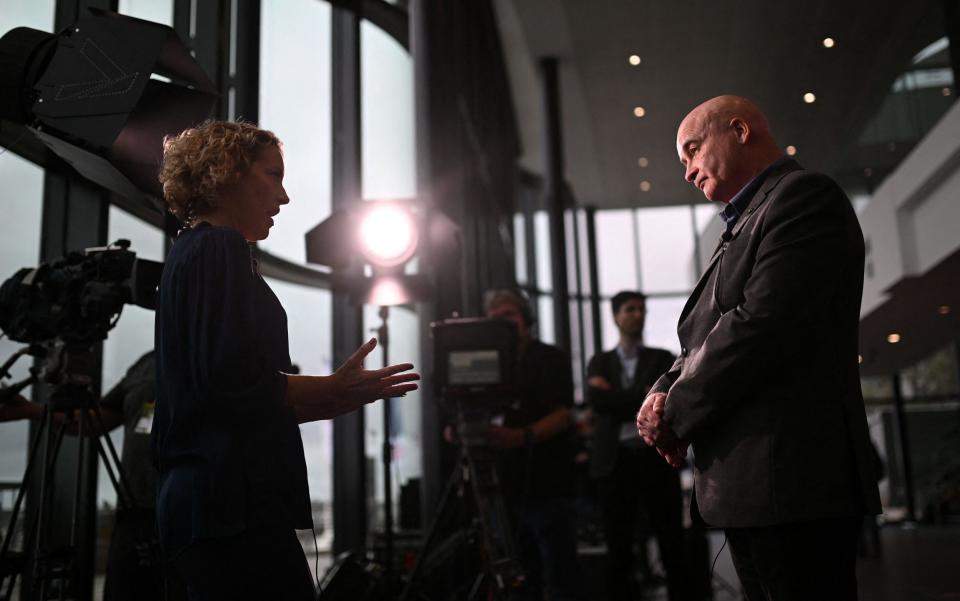Labour vows to renationalise railways to ‘put power in hands of public’

Labour has pledged to renationalise Britain’s rail industry by taking services into public ownership as existing contracts expire.
Louise Haigh, the shadow transport secretary, said a nationalised system would put “power in the hands of the public” as she promised to “reverse the spiral of decline”.
Britain’s rail industry is already largely in public ownership already following a series of government interventions, including moves made during the pandemic.
Ms Haigh said Labour would wait for existing contracts with private firms running specific services to expire before renationalising them.
Sir Keir Starmer is under pressure to deliver on promises made during his leadership campaign, which included a commitment to the renationalisation of rail, mail and water companies.
Delegates at the party’s annual conference in Liverpool voted for Royal Mail to be taken back into public hands. Sir Keir has rejected the plan and separate calls to nationalise Britain’s energy industry in an attempt to control rising prices.
Anneliese Dodds, the party chairman, said Labour was “pragmatic about public ownership” and would look to nationalise industries if there was a public benefit to removing them from private control.
She said: “We are concerned about the current situation. We would make sure that we were assessing whether better regulation could make markets work better and what role public ownership could play in parts of the energy system.”
The calls to renationalise the rail industry were backed by Mick Lynch, the general secretary of the Rail, Maritime and Transport (RMT) union, who has previously been critical of the Labour leadership.
“We’ve got a statement that we’re pleased with, that we’re going to go back into public ownership,” he told Times Radio.
“We think that’s good for the country and will be good for the economy and good for the environment if we can get a proper integrated transport policy.”
In her speech, Ms Haigh said: “The days of tinkering around the edges of a system that has so clearly failed the public are over. That’s why an incoming Labour government will end this farce.
“We will end this failed experiment. We will cast aside the tired dogma that has failed passengers. We will improve services and lower fares.”

Sir Keir has previously said that, for most industries, “the answer is going to lie in regulating the market, changing the market, rather than simply taking things into public ownership”.
He told The Mirror: “Rail is probably different from the others because so much of our rail is already in public ownership ... Pragmatically, that is the situation, and it’s going to be the situation for some time to come.”
Under the current system, the UK’s rail infrastructure is publicly owned under the control of Network Rail. Trains and most smaller stations are franchised and contracted to private companies to operate.
Britain’s rail strikes, which have been spearheaded by Mr Lynch, are set to continue next month when 40,000 rail workers down tools over a pay and conditions row on Oct 1, 5 and 8.
The strikes have been controversial within the Labour Party, with Sir Keir’s top team instructed not to join any picket lines. The RMT is not affiliated with Labour and is considered to be more Left-wing than the party.

 Yahoo Movies
Yahoo Movies 
